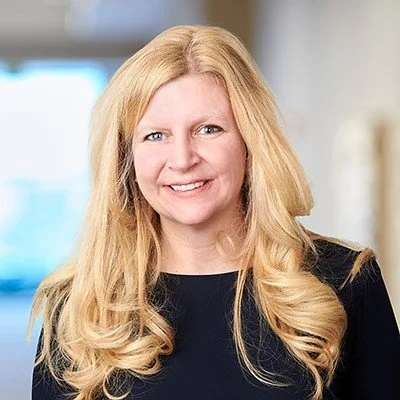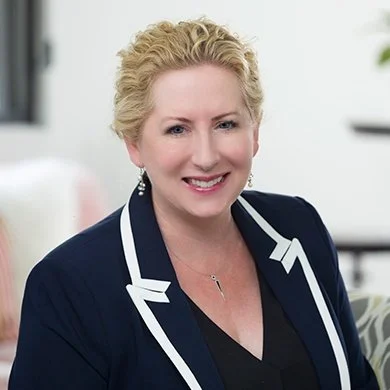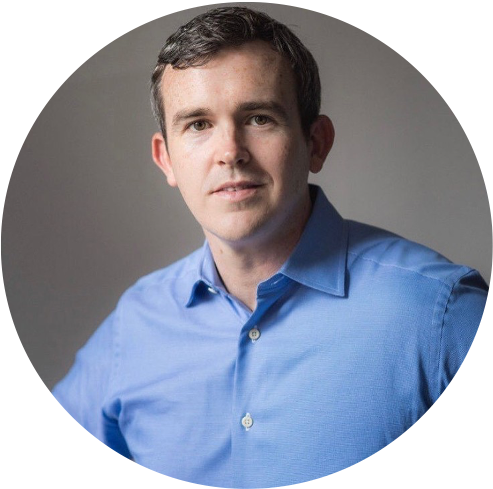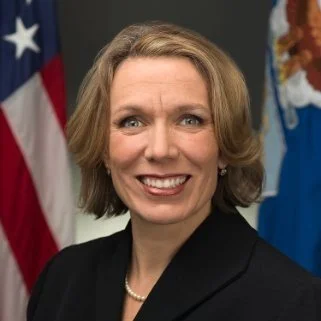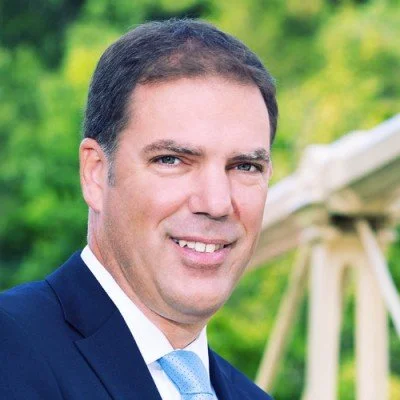CxO Interview Series
CxOs in our industry are responsible for enormous change. CEOs, CTOs, CFOs, Founders and other key execs are not only faced with normal business problems, but they are also responsible for leading society through an unprecedented energy transition and create climate solutions that scale.
Our CTLR CxO Interview Series highlights extraordinary executives who are leading fearlessly, making tough decisions or have successfully exited. Hear their story, strategies, and compelling journey.
Suzanne Hunt is Vice President, Policy at Generate Upcycle, a company dedicated to scaling up mature infrastructure in areas like organic waste recycling and wastewater.
In this episode, Suzanne talks about some of the challenges of advancing policy goals in a politically volatile environment, as well as advice on how climate activists and cleantech companies can work more cohesively together.
The Department of Defense is one of the largest consumers of energy in the U.S., and for over a decade, Ameresco has been enabling the DoD to decarbonize and transition to renewable energy.
Nicole Bulgarino, Executive Vice President at Ameresco, has personally overseen the development and implementation of over $3 billion of sustainable solutions in federal and government energy projects.
Geraldine Gray is the CEO of Endiem, a Houston-based company that designs and builds Salesforce solutions that scale for growth. Texas-sized in terms of clientele satisfaction, Endiem pushes the boundaries of what's possible on the cloud platform.
2:16 - To stay in business for a long time, you need to be resilient and grind it out. There’s no easy button for making your business successful. You need to look for continuous improvement within the organization — how can you make it 1% better, 1% more accurate, 1% more efficient, save 1% of the budget? And that continuous improvement is challenging, so you need to be okay with accepting accountability if you get some negative feedback.
19:10 - People in the renewable industry tend to have several roles in several companies. People in the oil, gas and chemical companies tend to stay at one company for a very long time. The benefit is that they bring a broad range of experience and knowledge to project, but it’s hard for them to see what’s possible in the future, rather than what needs to be done today. The renewable industry tends to have a broader mindset.
28:00 - Success in a business depends on how leadership executes their strategies. Tactics is doing things right. Strategy is doing the right things. You must have strategic marketing, strong sales and business development executed by people who care, not just have an engine that's generating leads. Don’t pursue opportunities that are a bad fit, with no strategy behind them.
Sean Kelly is the CEO and Co-Founder at Amperon which is bringing AI to global grids in the service of reliability, risk management, and sustainability. Amperon was founded with the goal to build the brain of the smart grid, powering real time operational analytics wherever electricity flows.
11:31 - The clean economy sector is where everything is headed. It’s a conversation at the dinner table not because it’s famous, but because it's infamous. There are extreme weather events that impact our lives so deeply, to the point where it’s not a clean economy anymore. It’s just the economy. So, once someone starts working in this sector, it’s hard to move elsewhere since this is a good spot to be.
18:39 - To be a great CEO means to inspire the right talent, bring them into your workplace and be a leader they can look up to. Doing all the little things won’t get you anywhere, so it’s important to stand up and demonstrate good leadership.
29:53 - If you want your performance as a CEO to stay high most days, it’s important to take care of yourself. Spend time with your family and focus on physical and mental well-being. Release any stress outside of work so you can start each day on a good note.
This month we’re chatting with Mahesh Konduru, who is now Board Chair of ProSep, a global energy services company focused on water treatment and chemical efficiency.
Mahesh’s company is private equity financed, with operations and subsidiaries in four regions around the world. He’s also CEO of Momentum Technologies, a company that processes critical minerals and metals into high-purity materials.
5:22 – It’s tempting to rush through team building in the fast paced, hectic
environment of a startup. But doing so puts your team and company at a
disadvantage. Take the time to understand the capabilities and aspirations of
employees before settling into a rapid, task-completion mindset.
14:56 - Once the company has reached profitability, the CEO’s focus shifts more to goal
setting and talent retention.
18:14 - Match the ambition of your company with the addressable market you're
seeking. If the addressable market is huge, keep your ambitions huge as well. If
you don't set the ambition, the capital will not follow.
24:23 - CEOs 'inheriting' a new team, rather than creating one, as a startup,
have a particular challenge in gaining the trust of their new employees. One
unconventional way to build a strong team is job shadowing, literally. Spend a
day watching your employees in action to understand the full scope of their responsibilities and observe the ways your leadership could make their jobs
easier.
Salina Derichsweiler, Director of Development at SunShare, transitioned from oil & gas to founding and leading geothermal startup Transitional Energy. Salina speaks with Catherine McClean, CEO of Dylan Green.
Salina discusses her current, new role as Director of Development at SunShare. Salina is leveraging her experience developing a wide range of energy projects to accelerate community solar in New Mexico, both within & outside of Tribal Nations & Pueblos.
“I was really driven by how do I change the conversation. How do I get folks in the oil and gas industry to stop viewing the world as fossil fuels versus renewables and more about solving the challenging energy problems that we have in our communities?”
Kathryn Meng, Investment Director at RA Capital Management discusses how she has navigated the industry, transitioned from humanitarian to cleantech work, as well as about some of the trends she’s seeing.
“We can invest in a myriad of solutions, but we'll be more successful and will attract more capital and we'll have more impact if we show that these investments can be lucrative”
Paige Carratturo is the Co-founder and CEO of Sea Change, a talent venture firm which provides advisory, business intelligence and retained search services to climate tech investors and their portfolio companies. This includes some of the largest global corporations that are transforming their executive teams in order to meet the complex demands of moving to a more sustainable and climate-focused operating model.
At Sea Change Advisors, Paige drives thought leadership and leads advisory services and C-level recruiting.
14:55 – To stay current on the talent pool, a leader needs to be regularly talking to potential candidates. Communicate with your team regularly about market conditions, spend time with your customers, and attend industry events. Don’t be afraid to lean on recruiters to get a detailed understanding of the talent market that comes from speaking with candidates daily.
16:50 - The ‘cool’ factor isn’t enough to draw in cleantech talent anymore. Top talent most values a healthy work culture, the flexibility to follow their passion at work and be able to affect huge issues like climate change, and strong company missions that align with their values.
18:50 - To be a successful recruiter, communicate with your candidates as you would a customer - transparency and clarity about the interview process makes candidates feel prioritized. Each person at your company who talks to a candidate should have a different goal for the conversation to ultimately make a hire based on data, not just gut feelings.
David Arfin invented SolarCity’s SolarLease, the revolutionary no-money-down financing program that supercharged SolarCity and the solar industry.
Now, as Co-Founder and CEO of NineDot Energy (a community-scale energy systems developer with an emphasis on battery storage), David leads a dynamic team of creative and passionate collaborators that leverage technology, policy, and markets to support a sustainable future.
6:39 - The 1-10-100 rule is when you identify an issue early, it costs you a point. If you let it sit and you ignore it for a little while, it costs you 10 points…
10:06 - Leading a clean economy company is very different because it is very policy dependent, both for the good and for the bad…I think that's fundamentally different than moving widgets around the world.
20.02 - So as a company, we believe it is very important to do behavioral interviews that eliminate or at least weed out biases so that we can…develop a new cohort of values-based learners who come from different environments.
22.35 - Our mission is to do good things, do them with great people, and do them in a way that we can be proud of. So, I'm a climate optimist.
Miranda Ballentine, a CEO with “.com,” “.org” and “.gov” experience. Most know her as the inspiring head of the Clean Energy Buyers Alliance but this dynamic leader has run a gamut that includes stints leading sustainability initiatives at Walmart and executive leadership in the U.S. Air Force (Installations, Environment, and Energy), an appointment under Barak Obama’s Presidency.
6:40 – The three most pertinent questions to ask yourself when facing a promotion or job change.
17:45 – Complex problem solving at the CEO level.
18:51 – Learn whether you are an entrepreneur or INTRApreneur.
31:31 – Miranda's strategy on how to establish broader perspective on a job candidate.
42:12 – Building a strong culture for your company is imperative, not a nice-to-have.
Jennifer von Bismarck leads Galway Sustainable Capital, a firm that invests in companies, projects and assets that accelerate the transition to greater sustainability while delivering positive environmental and social benefits.
7:33 – Rather than always trying to insulate your company from failure, build a team that will excel and bounce back when things go wrong (it’s inevitable!)
10:27 – Jennifer's advice for recent grads and early career professionals: to find fulfillment in your job, you should be dedicated to exploration throughout your whole career.
16:15 – There is a huge opportunity for farmers to make additional streams of income from leasing their land to solar and wind farms.
26:10 – Her go-to hiring question: “What do you get excited about?”
Hear about the inspired leadership that Uche Isiugo brings to his role as CEO & Founder of Infranergy and Managing Partner at Emerging Infrastructure Capital; and how his upbringing and living on two continents influenced his entrepreneurial path in energy.
In 2005, driven to transform the US energy economy through the rapid deployment of renewable assets, Jesse Grossman co-founded Soltage, an independent renewable power producer that develops, finances and operates distributed utility solar and solar-plus-storage project portfolios across the U.S.
15:11 – What were the lessons that you learned in the rainforest, were they applicable to running a company? And if so, what were they and how did they apply?
17:07 – Looking back, who were your most important mentors and what did you learn from them?
24:33 – When you compare notes with those people, with what your experience has been like, where you've been the CEO from the start of one company for almost two decades, what have you observed of your experience differing from their experiences?
27:22 – What is the difference in being a CEO of a venture back company versus a PE company, PE back company to one that is now stood up on its own and is, is maturing? How would you just table those differences?
South African native Claus Nussgruber leads Utility Global, a net-zero hydrogen company based in Houston. He spent his 31-year career working in and leading corporate initiatives focused on hydrogen and other rare industrial gasses.
3:48 – How Nelson Mandela taught Claus to level set his experience of frustrating situations and irritating people.
9:16 – Running a company in a more mature space is about realizing potential and maintaining the potential that’s already been achieved.
12:29 – New companies don’t have brand, so the clean economy CEO is the catalyst for the brand’s buildout.
15:17 – Why Claus hired an in-house coach and made the coach available to all of his employees.
17:37 – How opera serves the same purpose for Claus’s CEO performance as ice baths serve athletes.
Although Ike Emehelu knew he wanted to be a lawyer from his earliest days in Nigeria, he never imagined he would get to work on two of the three largest onshore wind projects in the U.S. Focusing almost exclusively on renewable energy project finance since 2008, Ike has worked on impactful projects throughout Africa, Latin America & the US, including through the Energy Access Relief Fund.



